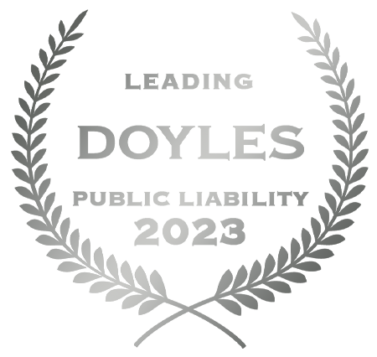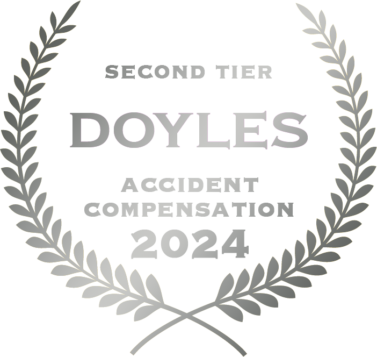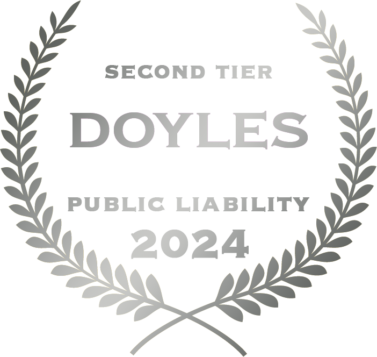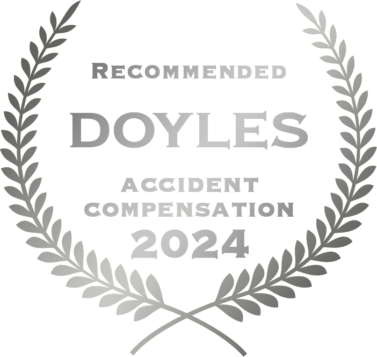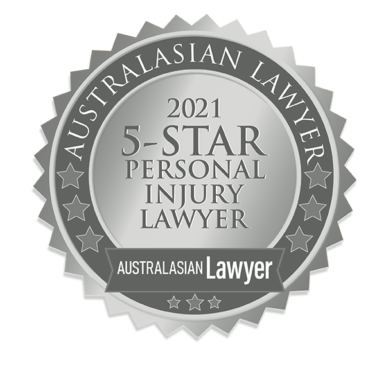
Compensation Payouts for PTSD in Australia.
PTSD claims in Australia are not uncommon and can be a real lifeline if you’ve been diagnosed with PTSD caused by your work, an accident, or witnessing a traumatic event.
Depending on what caused your condition, you may be entitled to PTSD compensation to cover your treatment costs, wages you’ve lost from being off work, and in some cases substantial lump sum payouts. However, many people with PTSD struggle with claiming their full entitlements,* and PTSD claims that are not supported by strong evidence are likely to be denied by insurers.
In this article, we explain everything you need to know about compensation payouts for PTSD in Australia, how to know if you’re entitled to claim, examples of successful PTSD claims, and how to get help with your claim.
*Experiences of Police and Emergency Services Employees with Workers’ Compensation Claims for Mental Health Issues, July 2020.
Quick links:
- What PTSD compensation can you claim?
- Police and emergency services PTSD claims
- PTSD workers compensation
- PTSD compensation payout amounts and examples
When can you claim PTSD compensation in Australia?
PTSD is a set of reactions that occur after you’ve been through a traumatic event.* People with PTSD can experience intense emotional or physical reactions including heart palpitations or panic, and it can lead to other mental health issues such as depression and anxiety, as well as alcohol or drug use. **
Here are some situations that can qualify for a PTSD compensation claim:
- Exposure to traumatic events through your work, for example as a police officer in the line of duty
- A physical work injury that leads to developing PTSD
- Involvement in a motor vehicle accident that leads to PTSD
- Exposure to a traumatic event in a public place, where the event or building management failed in their duty of care to you
- An injury caused by medical negligence that leads to PTSD
If you’re not sure whether you qualify for PTSD compensation, you can call 13 15 15 and find out. It’s a free service.
* https://www.phoenixaustralia.org ** https://www.beyondblue.org.au/
What PTSD compensation can you claim?
A PTSD claim is a claim for compensation to support you financially so that you can get the treatment and care you need. It can also include claims for lump sum compensation payouts.
In addition to compensation for weekly benefits and treatment, you could also be entitled to the following lump sum payouts:
- A lump sum payout for permanent impairment if your PTSD is work-related and deemed serious enough
- A lump sum payout for pain and suffering
- A lump sum payout for your income losses
- A lump sum payment through your super fund if your PTSD stops you from working
Police and emergency services claims for PTSD.
Police, ambulance workers, and firefighters can claim compensation for PTSD that develops from events they’ve been exposed to in the line of duty. This applies to a single traumatic event or the cumulative impact of traumatic events over time.
Police officers, ambulance workers, and firefighters are considered ‘exempt workers’ and are generally entitled to more compensation than most other professions. So it’s important that emergency services workers compensation claims for PTSD are handled by a lawyer who has strong experience in these claims.
At Law Partners, we have extensive experience claiming PTSD compensation payouts for police and other emergency services workers, including some very high-profile claims such as Mark Davidson, the lead sniper at the Lindt café siege in 2014. You can watch Mark’s story here.
If you’re an emergency service worker looking for help or information about PTSD, Emerge and See offers a range of support services.
PTSD workers compensation claims.
Here are some situations that can lead to a work-related PTSD claim:
- PTSD after a physical work injury
- Bullying and harassment
- Witnessing a traumatic event or accident
- Being involved in a traumatic event like a fire or explosion
- Being exposed to violence, such as a physical assault or robbery
The first step to claiming workers compensation for PTSD is to get an official diagnosis for your condition. If you already have a diagnosis, you can get free legal advice from a no win no fee lawyer who has strong experience in workers comp PTSD claims by calling 13 15 15.
How much PTSD compensation can you claim?
Using a workers compensation claim as an example, your total PTSD compensation amount is determined by:
- The amount of wages you’ve lost through being off work
- Your medical and treatment costs
- Your level of whole person impairment (WPI), which determines your entitlement to lump sum permanent impairment compensation
- Whether your employer’s negligence led to you developing PTSD, which determines your entitlement to a work injury damages lump sum
PTSD workers compensation settlement example.
As an example of a PTSD compensation calculation, let’s look at the case of a police officer. After more than 20 years in the NSW police force, the officer developed PTSD from the cumulative effect of attending violent crimes and traumatic car accident scenes.
After months of struggling with anxiety and needing significant time off work, he was eventually diagnosed with PTSD and assessed as having a whole person impairment rating of 30%.
The officer also had a TPD (total and permanent disability) insurance policy connected to his super fund, which paid him a lump sum as he was no longer able to work as a police officer.
His total compensation was:
| Compensation Payment | Amount |
| Weekly benefits (lost wages and treatment expenses) | $186,500 |
| Permanent impairment lump sum | $86,370 |
| Work Injury Damages lump sum | $300,000 |
| TPD insurance lump sum | $280,000 |
| Total PTSD compensation payout | $852,870 |
Call 13 15 15 or chat to us now for free advice
Chat nowFind out how much you can claim.
Get startedExamples of PTSD compensation settlements in Australia.
Case study 1: work injury PTSD claim.
Stacey^ was working in a bar when one night at closing time, as she was locking the door, masked men pushed the door open forcing her to the ground, and proceeded to rob the bar. Stacey suffered a serious shoulder injury that took several months to heal. However, it was the psychological trauma that kept Stacey off work for a more significant period of time. She would have flashbacks to the event, and she became fearful of being alone or going out in public. Stacey’s condition required ongoing treatment, and she was never able to return to that type of employment again.
Stacey’s psychological injury resulted in a WPI assessment of well over 15%. After rejecting an initial PTSD compensation settlement offer from the insurer, we succeeded in making a significant lump sum permanent impairment claim on her behalf, in addition to compensation for her lost wages and treatment costs.
Case study 2: motor vehicle accident PTSD claim.
The second example involves a recent case where a mother and her children witnessed the father being knocked off his motorcycle by a car that ran a stop sign. It was a serious accident that resulted in the father being airlifted to hospital, and the children were traumatised.
Eventually, the father was released from hospital to start his long road to recovery, but the children continued to have symptoms of PTSD for quite some time. It affected their schoolwork and social lives, and it became clear that these children were going to feel the financial consequences of this accident and their PTSD for the rest of their lives.
In the end, all the claims, including the children’s, were settled with lump sum PTSD compensation payouts for pain and suffering, economic loss, and treatment expenses. We negotiated settlements to represent fair compensation for the ongoing impact the incident had on their lives and will continue to have for many years to come.
^Client’s name has been changed to protect their identity.
Is PTSD a permanent impairment?
Yes, PTSD may be considered a permanent impairment as far as eligibility for compensation is concerned.
Whole Person Impairment (WPI) is a scale used to measure the severity of your injuries – a higher WPI can result in a higher compensation payout. For example, if you’ve been injured in a work accident and your WPI is 11% or more for a physical injury or 15% or more for a primary psychological injury, then you may be entitled to receive a permanent impairment payout.
Police and other emergency service workers may be entitled to a permanent impairment payout even if their WPI is less than 11%.
PTSD claim lawyers.
Claiming compensation for PTSD can be complex, but you’ll have a much better chance of receiving everything you’re entitled to if you have an experienced PTSD claim lawyer on your side. We have extensive experience with PTSD claims, and we win over 99% of our cases.
If you’d like to know if you can claim a compensation payout for PTSD, call Law Partners and have a confidential conversation with one of our specialist personal injury lawyers today.

Chantille Khoury
Principal
Chantille is a multi-award-winning, preeminent workers compensation specialist with over 20 years’ experience. Having ranked top 6 nationwide in the highest category of the Doyle’s Guide, Chantille is now providing feedback on policy changes for the Personal Injury Commission and government bodies.
Related articles.
Do I have a case?
Our senior lawyers will assess your case for free.




